Drastic changes and developments in terms of concepts and practices characterize the recruitment process in 2024—recurrent usage of applications of Artificial Intelligence and machine learning in recruitment. Technologies like artificial intelligence applicant tracking systems, first-line chatbots, and even predictive analytics for the acquisition of talent are beginning to change the way organizations source talent. The global pandemic that began with COVID-19 has already changed work environments. In amidst a hostile environment like we find ourselves in, HR needs to strengthen their roots and expand their expertise – and What better way to do it than Recruitment Books!
Businesses are beginning to give more importance to the human resource management aspect of diversity and workplace inclusion. Major trends signify that recruiters are striving to design convenient, entertaining, and transparent actions to attract customers with staffing services. It is common to hear or read about the indication that skills and experience are more important than degrees. This prompted employers to focus on the capability of the candidates and not where such candidates acquired their education hence resulting in the use of skills-based systems.
Importance of Recruitment Books!
For one to be fit for the challenge of practicing HR in these changes, one has to educate themselves most of the time. One of the prime constituents of the ongoing learning process in these organizations is recruitment literature. Here’s why:
- Staying Informed: The use of recruitment books is very important for one to learn the trends, tools as well as techniques in place. They are original and offer a good overview of relatively new concepts with the potential to become dominant in the field.
- Best Practices: Good recruitment books gather knowledge in the form of written practices from leading gurus in the respective industries. Such knowledge assists the professionals in the human resource department in enhancing the efficiency of their operations and using successful techniques in the recruitment process.
- Innovative Ideas: The literature review is important because it helps the reader to develop new ideas when exposed to different opinions. Sometimes case examples and either presented in books or other theoretical models and approaches can be quite captivating and inspiring for the changes in recruitment.
- Continuous Improvement: Regarding the concept of competition, the recruitment field is considered highly competitive. Reading more recruitment books checks for people in the HR field enables them to stay informed to help in the attraction and retention of clients’ talents.
- Professional Development: Recruitment literature consumption leads to a professional level of knowledge and the gaining of new ideas and practices. This way, it improves one’s capacity to generate a fair judgment on various issues and offers strategic guidance and direction to a team and the organization as a whole.
Top Recruitment Books in 2024–
As the field of human resources continues to evolve, staying informed through literature is more important than ever. Here are some of the best recruitment books in 2024 that provide valuable insights and practical strategies for HR professionals.
1. Human Resources Management by Gary Dessler
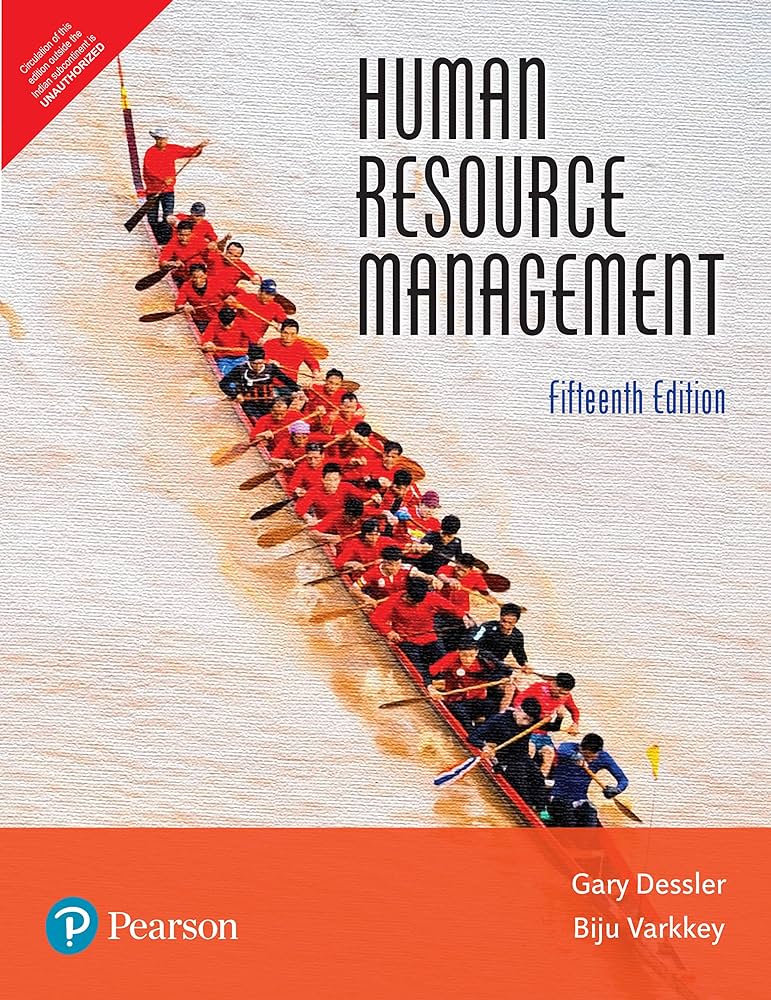
Overview:
Gary Dessler’s Human Resources Management is often regarded as the HR bible. Spanning 700 pages and divided into 18 chapters, this book comprehensively covers the fundamental aspects of HR.
Key Features:
- Recruitment and Placement: An outline of the procedures in the attraction and placement of talent.
- Talent Management: The approaches and measures to be taken to keep and enhance the skills of the employees.
- Training and Development: Ways of improving the capacity of the employees.
- Compensation: What we should know about fair and motivational compensation and benefits.
- Employee Relations: Methods of encouraging positive relationships between employers and their employees.
Relevance:
Due to detailed descriptions of HR’s core responsibilities, the book is appropriate for people at various levels of experience in the field. Together with their practical tones, these notions assist readers in using these ideas in their companies successfully.
2. Victory Through Organization by Dave Ulrich, David Kryscynski, Wayne Brockbank, and Mike Ulrich
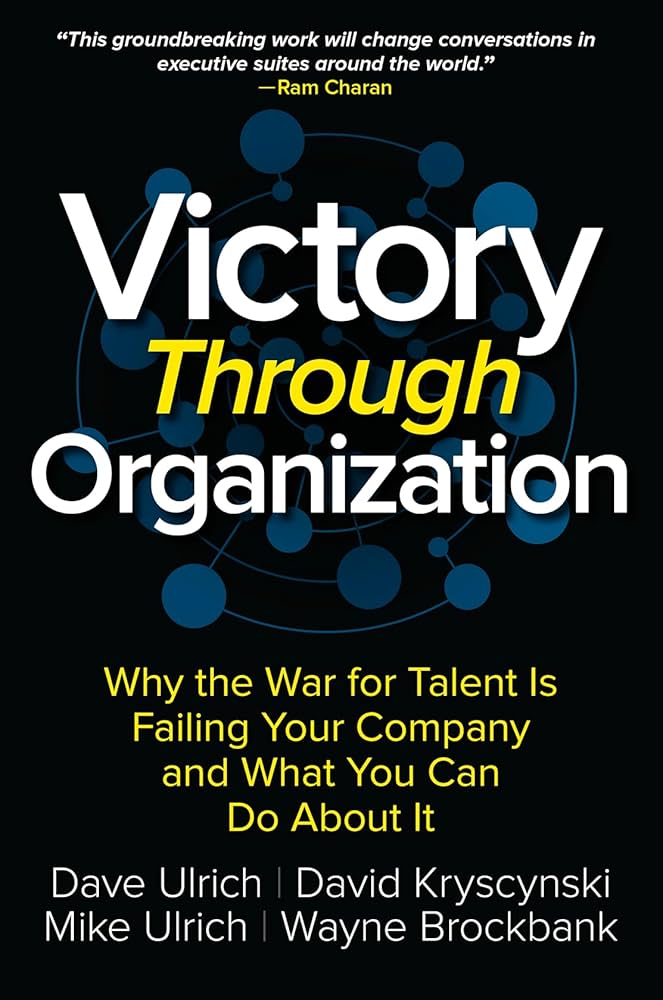
Overview:
This book is based on an extensive HR competency study involving over 30,000 professionals. It explores how HR can add significant value to various stakeholders, including employees, businesses, investors, and communities.
Key Features:
- HR Competency Study: World’s largest sample size ever employed in HR capabilities research.
- Value Creation: More rigorously documented account specification of what value HR brings to various business functions.
- HR Analytics: The role of quality integrated data systems for modern strategy and execution of key initiatives for the HR function.
- Integrated HR Practices: Strategies for processes of HRM’s positioning with strategic objectives.
Relevance:
Recommended for senior HR managers, this book is quite heavy but rich in profound information about how HR could build organizational effectiveness and increase the satisfaction of different stakeholders.
3. Work Rules! by Laszlo Bock
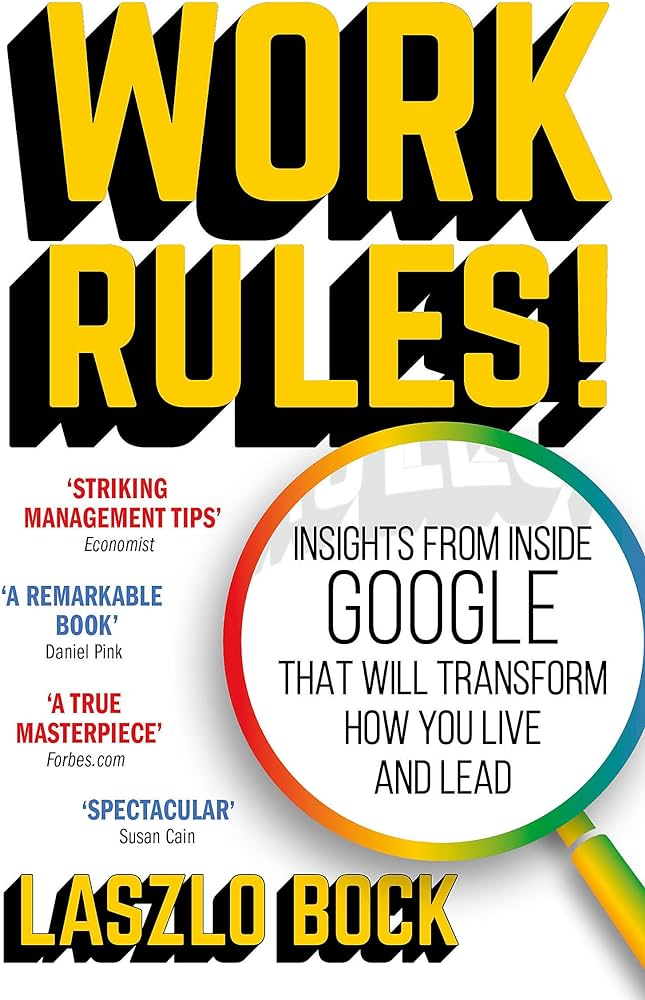
Overview:
Laszlo Bock, former VP of People Operations at Google, shares the best HR practices from one of the world’s leading companies in Work Rules!
Key Features:
- Company Culture: Importance of fostering a positive and productive workplace environment.
- Data-Driven HR: Utilizing data to inform HR decisions and practices.
- Performance-Based Compensation: Rationale and implementation of rewarding high performers.
- Practical Advice: Easily implementable best practices for immediate application.
Relevance:
This engaging book is suitable for HR professionals seeking practical, innovative ideas to improve their HR practices. Bock’s insights from Google provide a unique perspective on modern HR management.
4. The Way of the HR Warrior by Monica Frede and Keri Ohlrich, PhD
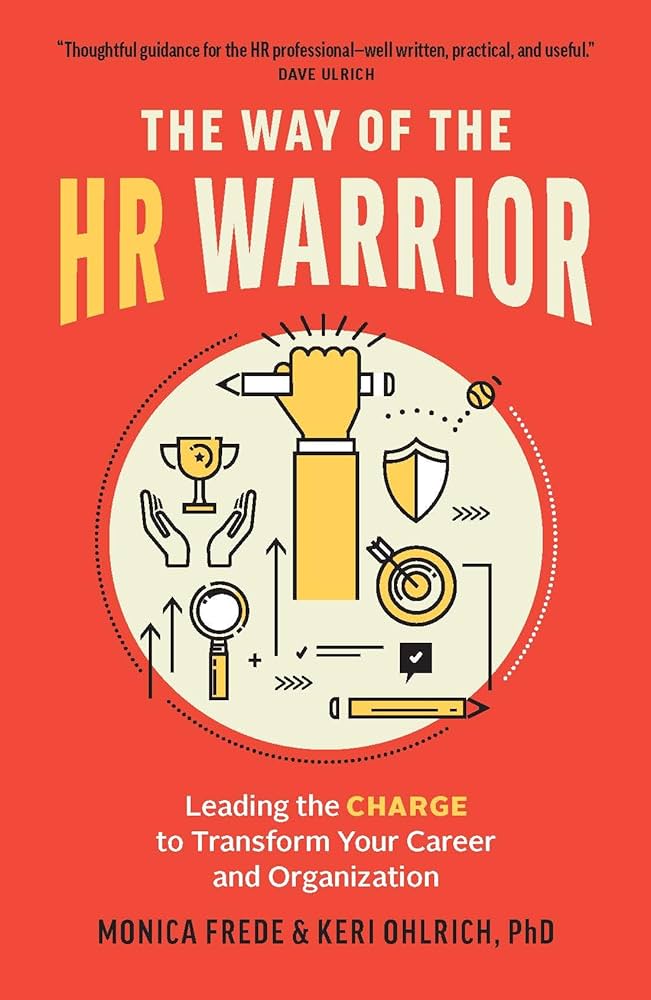
Overview:
Frede and Ohlrich aim to revolutionize the HR profession by empowering HR professionals to become “HR Warriors.”
Key Features:
- CHARGE™ Model: Framework emphasizing Courage, Humility, Accuracy, Resiliency, Goal-oriented, and Exemplary qualities.
- Real Case Studies: Practical applications of the CHARGE™ model in various scenarios.
- Professional Growth: Tools and strategies for personal and professional development.
Relevance:
This book inspires HR professionals to take a proactive approach in their careers and organizations, making it a must-read for those looking to enhance their impact and effectiveness.
5. The Essential HR Handbook by Sharon Armstrong and Barbara Mitchell
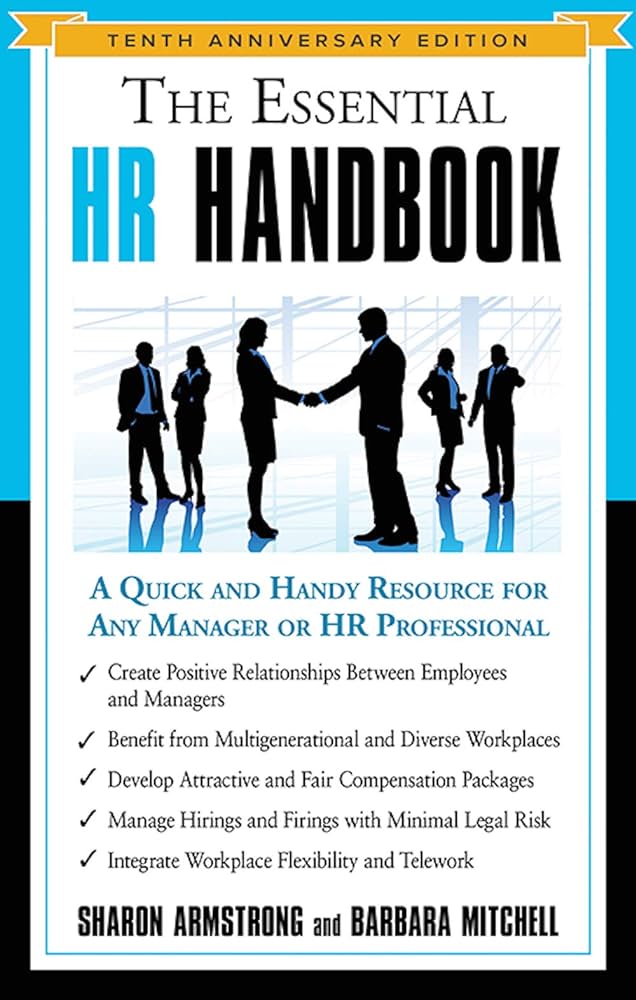
Overview:
Celebrating its 10th anniversary, this best-seller offers updated tips, tools, and resources for essential HR functions.
Key Features:
- Comprehensive Coverage: Each chapter addresses a core HR element with practical solutions.
- Main Message for Managers: Summaries providing quick reference points.
- Modern Methods: Strategies for attracting talent and streamlining onboarding processes.
- Legal Compliance: Guidance on avoiding legal pitfalls and ensuring regulatory compliance.
Relevance:
The Essential HR Handbook is a practical guide for HR professionals seeking to navigate everyday challenges efficiently. The authors’ extensive experience adds credibility and depth to the advice offered.
Challenging yourself with continual learning.
The books mentioned here are loaded with abundant knowledge and realistic information. It ranges from Gary Dessler’s general guide to Dave Ulrich’s detailed study of HR competencies; each of these Recruitment Books has something important to say and practical to tell. Finally, Laszlo Bock’s tips originating from Google and Monica Frede and Keri Ohlrich’s positive attitude add more value to the reader concerning contemporary HR practices. Sharon Armstrong and Barbara Mitchell’s updated handbook and Julia Adler’s highlighting the principles of digital recruiting stress the utilization of contemporary instruments and methods.
As we look to the future of recruitment, one thing is clear: ever-evolving markets will be the idea of innovation and learning. Through the strategy of reading these recommended books and applying the concepts derived from them in practice, HR professionals increase their efficiency, provide broader and deeper contributions to organizations, and devote their efforts to creating optimal conditions for the growth of humanity and organizations.